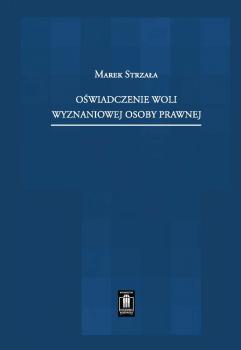Oświadczenie woli wyznaniowej osoby prawnej
Słowa kluczowe:
wola wyznaniowa, osoba prawna, formy prawne wspólnot religijnychStreszczenie
Making declarations of intent of denominational legal entities is a complex issue which is solved differently in each European country. In particular, there are differences concerning method of regulating organisation of denominational legal persons and possibility to shape organisational structure in accordance with the selfunderstanding of the religious community and its internal law. These issues largely depend on the legal form of the religious community.
In Europe religious communities can generally choose normal forms of legal personality, e.g. association, foundation or corporation (to some degree the Federal Republic of Germany, the Italian Republic, the Republic of Austria, the Kingdom of Spain). Sometimes there are some modifications if a religious community choose this type of legal personality (the French Republic). It is often possible to reflect the self-understanding of the religious community in the organisational structure of this legal entities. Sometimes it is often possible to ensure the effectiveness of internal law in the state legal system. This includes especially principles of property management derived from internal law of the religious communities. For this reason, religious communities that use these normal forms of legal personality choose forms which organisational structure can be freely regulated by bylaws, in particular the legal forms of the association and foundations. Also in Poland there is a general possibility of regulating internal structure of legal entities that will reflect structures of the religious communities and its internal laws. This applies especially to associations, however there are some limitations. In some European countries there is a special form of legal personality for religious communities and their organisational units (denominational legal personality). This applies especially to the Federal Republic of Germany, the Italian Republic, the Republic of Austria and the Kingdom of Spain). In the case of this legal entities rules of will-creation and limits of authority to represent are regulated by religious communities. Usually, these rules are formed on the basis of by-laws autonomy (registered religious communities in the Republic of Austria, registered religious communities in the Kingdom of Spain, religious communities recognized under the Act of 1929 and partly religious communities with their own individual statute in the Italian Republic). At the same time, there are state laws protecting the parties that conclude contracts with denominational legal entities, e.g. public registers that enable to check rules of representation (registered religious communities in the Republic of Austria, registered religious communities in the Kingdom of Spain, religious communities recognized under the Act of 1929 in the Italian Republic). Also in Poland there is a similar special legal form of denominational legal entity – registered religious communities and their organisational units, that have their own legal personality. The by-laws of such legal persons can be shaped very freely, which allows to reflect the organisational structure and internal laws of a religious communities. However, the existing register of such legal persons does not fully protect the parties of contracts with such religious legal persons. That is because it is possible to declare a contract null and void due to the violation of principles of representation even if they were not included in the register. On the other hand, it is possible to find legally binding texts of the by-laws in the registration files.
Rozdziały
-
TABLE OF CONTENTS
-
WPROWADZENIE .......... 21
-
ROZDZIAŁ I. KSZTAŁTOWANIE ZASAD REPREZENTACJI OSÓB PRAWNYCH WSPÓLNOT RELIGIJNYCH W WYBRANYCH PAŃSTWACH EUROPEJSKICH .......... 43
-
I.1. Uwagi wstępne .......... 45
-
I.2. Republika Austrii .......... 45
-
I.3. Republika Francuska .......... 57
-
I.4. Królestwo Hiszpanii .......... 64
-
I.5. Republika Federalna Niemiec .......... 72
-
I.6. Republika Włoska .......... 83
-
I.7. Podsumowanie .......... 94
-
ROZDZIAŁ II. KSZTAŁTOWANIE ZASAD REPREZENTACJI WYZNANIOWYCH OSÓB PRAWNYCH W POLSCE W LATACH 1918-1989 .......... 99
-
II.1. Uwagi wstępne .......... 99
-
II.2. Prawo państw zaborczych .......... 99
-
II.3. Druga Rzeczpospolita .......... 138
-
II.4. Polska Rzeczpospolita Ludowa .......... 166
-
II.5. Podsumowanie .......... 172
-
ROZDZIAŁ III. SKŁADANIE OŚWIADCZEŃ WOLI PRZEZ OSOBY PRAWNE W PRAWIE POLSKIM .......... 175
-
III.1. Uwagi wstępne .......... 175
-
III.2. Pojęcie osoby prawnej .......... 175
-
III.3. Działanie osoby prawnej .......... 185
-
III.4. Skutek wadliwego złożenia oświadczenia woli za osobę prawną .......... 195
-
III.5. Znaczenie rejestrów osób prawnych .......... 214
-
III.6. Podsumowanie .......... 219
-
ROZDZIAŁ IV. OSOBOWOŚĆ PRAWNA WYZNANIOWYCH OSÓB PRAWNYCH .......... 221
-
IV.1. Uwagi wstępne .......... 221
-
IV.2. Katalog wyznaniowych osób prawnych .......... 228
-
IV.3. Przesłanki nabycia osobowości prawnej przez wyznaniowe osoby prawne .......... 269
-
IV.4. Moment nabycia osobowości prawnej .......... 282
-
IV.5. Przesłanki utraty osobowości prawnej przez wyznaniowe osoby prawne .......... 288
-
IV.6. Moment utraty osobowości prawnej przez wyznaniowe osoby prawne .......... 296
-
IV.7. Podsumowanie .......... 298
-
ROZDZIAŁ V. DZIAŁANIE W CHARAKTERZE ORGANU REPREZENTACJI WYZNANIOWEJ OSOBY PRAWNEJ .......... 301
-
V.1. Uwagi wstępne .......... 301
-
V.2. Właściwość przepisów ustrojowych wyznaniowych osób prawnych .......... 303
-
V.3. Istnienie organu reprezentacji .......... 311
-
V.4. Ujawnienie działania w charakterze organu reprezentacji .......... 368
-
V.5. Sposób działania organu reprezentacji .......... 393
-
V.6. Podsumowanie .......... 406
-
ROZDZIAŁ VI. DZIAŁANIE PIASTUNA ORGANU REPREZENTACJI .......... 411
-
VI.1. Uwagi wstępne .......... 411
-
VI.2. Powołanie do funkcji piastuna organu reprezentacji .......... 411
-
VI.3. Utrata funkcji piastuna organu reprezentacji .......... 428
-
VI.4. Podsumowanie .......... 442
-
DZIAŁANIE ORGANU REPREZENTACJI W GRANICACH UMOCOWANIA .......... 445
-
VII.1. Uwagi wstępne .......... 445
-
VII.2. Rejestrowe osoby prawne .......... 454
-
VII.3. Wspólnoty religijne działające na podstawie ustaw indywidualnych .......... 466
-
VII.4. Podsumowanie .......... 516
Downloads
Bibliografia





